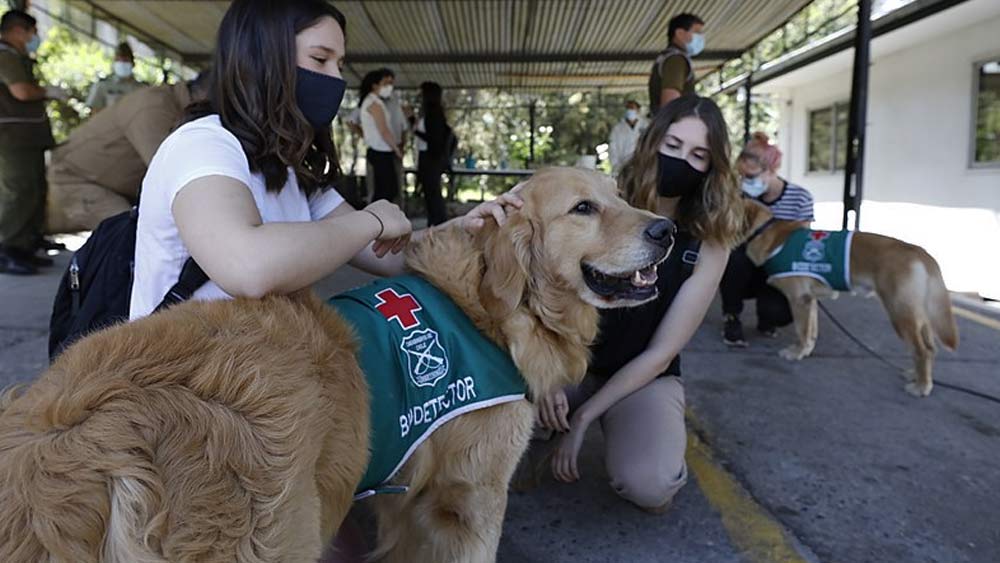Taking care of your dog’s health is an important part of being a responsible pet owner. Unfortunately, dogs can be affected by a variety of diseases and illnesses that can have serious consequences if not treated properly. Common dog diseases include eye problems, skin disorders, bloat, Lyme disease, Cushing’s syndrome, blocked anal glands, poisoning, heart disease, kidney disease, cancer, and mange. Knowing the signs and symptoms associated with these ailments is key to providing your pup with the best possible care. Here we will discuss 21 common dog diseases so you know what to look out for in order to keep your pup happy and healthy.
Common dog diseases and illnesses
1. Canine Distemper: Caused by a virus, canine distemper is an infectious disease that affects the respiratory, gastrointestinal, and nervous systems. Dogs should be vaccinated against this highly contagious and potentially fatal disease. Symptoms include fever, coughing, runny nose, vomiting, diarrhea, and seizures.
2. Parvovirus: Parvovirus is a highly contagious virus that attacks the gastrointestinal system of dogs. It can be spread through contact with infected feces, contaminated objects, and even just by being in close proximity to an infected dog. Symptoms of parvovirus include vomiting, diarrhea, lethargy, loss of appetite, and fever.
3. Kennel Cough: Also known as bordetella bronchiseptica or infectious tracheobronchitis, kennel cough is a respiratory disease caused by bacteria or viruses. It’s highly contagious among dogs who are in close physical contact with each other (like at kennels). Symptoms include frequent coughing and gagging, nasal discharge, and fever.
4. Heartworm Disease: This is a serious and potentially life-threatening disease that’s caused by the parasite Dirofilaria immitis. It is transmitted to dogs through infected mosquito bites, and can cause severe damage to their lungs, heart, and other organs if left untreated. Symptoms include coughing, weakness, fatigue, weight loss, and difficulty breathing.
5. Rabies: Rabies is an infectious viral disease that affects the central nervous system of warm-blooded animals including dogs. It’s spread through contact with saliva or other body fluids from an infected animal (usually via a bite). Early symptoms of rabies in dogs include fever, restlessness, aggression, hydrophobia (fear of water), and paralysis.
6. diabetes: Diabetes is a chronic illness that affects the way your dog’s body processes glucose (blood sugar). It can be caused by either a lack of insulin or an inability to use it properly. Common symptoms of diabetes in dogs include increased thirst and urination, weight loss, lethargy, and poor coat condition. If left untreated, diabetes can lead to serious health issues.
7. Allergies: Dogs can develop allergies just like humans, with the most common type being food allergies. Other types of allergies in dogs include environmental or contact allergies, flea allergy dermatitis, and seasonal allergies. Symptoms of canine allergies vary depending on the type but can include itching, scratching, sneezing, runny eyes and nose, and skin rashes.
8. Fleas: Fleas are small, wingless parasites that feed on the blood of dogs and other animals. They can cause serious health problems such as skin irritation, anemia, and even infection. Symptoms of flea infestation include intense itching and scratching, hair loss, redness or inflammation of the skin, and tapeworms.
9. Pancreatitis: Pancreatitis is a serious and potentially life-threatening inflammation of the pancreas. It can be caused by diet, drugs, trauma, or genetics. Symptoms include vomiting, lethargy, abdominal pain, decreased appetite and weight loss.
10. Ear Infections: Dogs are prone to ear infections due to the shape of their ears, which can trap moisture and debris. Symptoms of ear infections include redness and swelling in the ear, head shaking, bad odor, discharge or blood from the ear, and pain or tenderness when touching the ears.
11. Conjunctivitis: Conjunctivitis, also known as “pink eye”, is an inflammation of the conjunctiva (the membrane that lines the inner surface of the eyelid and covers the white part of the eyeball). It can be caused by allergies, infection or trauma. Symptoms include redness and irritation in the eyes, discharge from one or both eyes, increased tear production and squinting.
12. Skin Problems: Common skin problems in dogs include allergies, flea infestations, mange, and hot spots. Symptoms can range from itching and scratching to hair loss and redness or inflammation of the skin.
13. Bloat: Gastric dilatation-volvulus (GDV) is a life-threatening condition that affects deep-chested dog breeds like German Shepherds and Great Danes. It occurs when the stomach fills with air or gas, causing it to twist on itself which cuts off circulation to vital organs. Symptoms include restlessness, pacing, excessive drooling, enlarged abdomen, labored breathing, and shock.
14. Lyme Disease: Lyme disease is caused by bacteria transmitted through tick bites that can cause serious health issues if left untreated including joint pain and swelling as well as neurological symptoms such as facial paralysis or seizures. Early signs of infection include fever, lethargy, lameness, or swollen lymph nodes near the site of the bite.
15. Cushing’s Syndrome: Cushing’s syndrome is an endocrine disorder caused by an overproduction of cortisol hormones in the body due to either natural causes or certain medications used for long periods of time such as prednisone. Symptoms include increased drinking and urination, hair loss, pot-bellied appearance, lethargy, and panting.
16. Blocked anal glands: Blocked anal glands occur when the small sacs located near a dog’s anus become inflamed and filled with fluid. Symptoms of blocked anal glands include scooting, licking, or biting at the area around the backside, pain or discomfort when sitting or defecating, and bad odor coming from the rear end.
17. poisoning: Dogs may be exposed to poisoning either through ingestion or absorption through their skin. Common sources of poisoning include plants, rodenticides, and other chemicals such as fertilizers or cleaning solutions. Symptoms vary depending on the type of poison but can include vomiting, diarrhea, drooling, tremors and seizures.
18. Heart Disease: Heart disease is a common dog health issue that can be caused by a variety of factors such as hereditary conditions, diet, or viruses. Symptoms can include coughing, labored breathing, exercise intolerance, and fluid retention in the abdomen.
19. Kidney Disease: Kidney disease is one of the most common dog diseases and is caused by an inability of the kidneys to filter waste products from the blood. Symptoms can include increased thirst, weight loss, vomiting, bad breath, and decreased appetite.
20. Cancer: Cancer is a serious health issue for dogs and can be caused by a variety of factors such as genetics, nutrition, or exposure to environmental toxins. Common signs and symptoms of cancer in dogs include swelling, loss of appetite, persistent lameness, and abnormal bleeding.
21. Mange: Mange is a skin condition caused by mites, which can cause severe itching and discomfort for dogs. Symptoms include redness and crusting of the affected area as well as hair loss in more severe cases. Treatment usually involves antibiotics or anti-parasitic medications to kill off the mites.
What to Do when your dog has become ill
When you first suspect that your dog is ill, it is important to take them to the vet as soon as possible. Your vet will be able to accurately diagnose the issue and recommend a course of treatment.
It is important to provide your vet with information such as any changes in behavior you have noticed, when they first started exhibiting signs of illness, and whether or not they have had any recent exposure to toxins.
If your dog has been diagnosed with a condition, follow all of your veterinarian’s instructions for treatment and ensure that your pet is taking the prescribed medications correctly. Additionally, you should monitor them closely for any changes in their symptoms and report those back to the vet so that adjustments can be made if necessary.
In some cases, such as cancer or heart disease, dietary changes may be recommended in order to improve the health of your pet. Be sure to follow these carefully and only feed them meals specifically designed for their condition. Finally, make sure that you are providing regular exercise for your dog so that their bodies are kept strong and healthy.
Conclusion
It’s important to be aware of the signs and symptoms associated with common dog diseases so you can seek prompt veterinary care if your pet becomes ill. Regular checkups and vaccinations are also an important part of keeping your dog healthy and preventing disease. Consult with your veterinarian for more information about which dog diseases may be most concerning in your area.



















